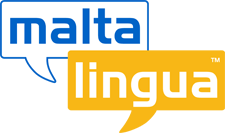CEFR English level
| Low | Medium | High | |||
| A1 | A2 | B1 | B2 | C1 | C2 |
Read the following text:
|
Receptionist |
Hello, Maltalingua School of English. How may I help you? |
|
Customer |
Hello, yes. I wonder if you could give me some information about your afternoon lessons. |
|
Receptionist |
Yes of course. |
|
Customer |
I’d like to know what the lesson times are for the afternoon lessons. |
|
Receptionist |
Our afternoon intensive lessons begin at 1:30PM and finish at 3:00PM. |
|
Customer |
Could you tell me the maximum number of students per class? |
|
Receptionist |
The maximum number of students per class is twelve students. |
|
Customer |
Twelve students! That’s great! I’ll have lots of people to speak to. Do you know if the teacher is from England? |
|
Receptionist |
We have teachers from all over the world. They’re all qualified and they all speak very clearly. |
|
Customer |
That sounds good. Do you think you could tell me when the next course begins? |
|
Receptionist |
We have a new course starting every week. Would you like to book a starting date? |
Look at the indirect questions used to make polite requests:
You can use indirect questions when you are making polite enquiries. Direct questions can sometimes sound impolite.
Begin indirect questions with introduction + (‘if’ or question word) + indirect question.
Do you know if he wants to go direct?
Here are some common introductions to indirect questions:
I wonder…
I’d like to know…
Could you tell me…?
Do you think you could tell me…?
[watupro 23]
